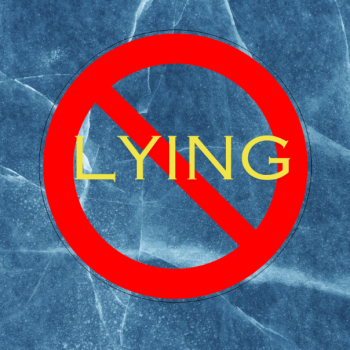 Paula Huston’s A Land without Sin is a real page turner. I couldn’t put it down. I didn’t know where it was going or if it would be resolved. Reading it was an adventure of the spirit, joining drama, suspense, ethics, and spirituality.
Paula Huston’s A Land without Sin is a real page turner. I couldn’t put it down. I didn’t know where it was going or if it would be resolved. Reading it was an adventure of the spirit, joining drama, suspense, ethics, and spirituality.
Amid the many trajectories of this book, the one that spoke to me was the “impossible possibility” of forgiveness. Vengeance is always a possibility in a sinful world. We want an eye for an eye, whether it is in relationship to Saddam Hussein, Bashar al-Assad, or Osama bin Laden. We routinely polarize political opponents, right and left. They become cardboard figures, lacking any inwardness, and scapegoats responding to our own need to have villains. The world becomes populated by heroes and villains, good guys and bad guys, with our side obviously sinless and righteous while the other side is irreparably evil.
Two thousand years ago, Jesus offered sagely counsel on interpersonal relationships: “Love your enemies and pray for those who persecute you.” These words from the Sermon on the Mount invite us to see holiness in those with whom we contend and those who attack us personally or physically. While Jesus’ words may not be a clear and absolute counsel for pacifism, they challenge us to look for the divine spark in those who oppose us and this will place limits on our behaviors. Deep down, they are not our enemies – they and we only think so.
A Land without Sin raises the issue of revenge. When Osama bin Laden was killed, President Obama made clear that justice had been done. Retributive justice can make things right to a certain extent. “An eye for an eye, tooth for a tooth” in the relationships of tribes and nations was intended to limit retaliation. At its best, retributive justice “evens the score” and gives the aggrieved a sense that the order of the universe has been restored. It does not, as those who have lost loved ones due to terrorism or drunk drivers, bring their beloved friends and family back to life.
Can we see the holiness in the other and still be a party in legal punishment or even decisive and immediate restraint, including death? I think the answer is “yes.” I am, by personality and persuasion, a gentle person. I tend to favor a strong national defense and also great restraint in using our military. We have to have exceptional reasons for going to war and putting our military men and women’s lives at risk along with innocent citizens. We need strong justifications (the spirit of the just war theory) to retaliate for harms done to our nation. I personally aim at a world in which the lion and lamb lie down together and swords are beaten into plowshares. I also have no doubt that I would in the moment use whatever force, including deadly force, was necessary to protect my grandsons and family members, if there were no time for reasoning with the potential attacker.
Typically, opponents in war and politics dehumanize each other. The al-Qaeda are seen as less than human, forgetting that many al-Qaeda members love their spouses and children and feel, albeit misguidedly, justified in attacking Western oppressors. Terrible names were used to describe the Vietnamese enemies: leaders knew that killing a real human being is more difficult than a completely evil, one-dimensional figure. Often religious leaders, especially monotheistic religious leaders, speak as if God doesn’t love the terrorist, oppressor, political opponent, or anyone with whom we radically disagree. The Christian right’s caricatures and misinformation about President Obama is a sad case in point.
There is no way to avoid an uneasy conscience in political and military life, and this includes pacifists. Pacifists, who do not let the legal system take its course with appropriate measures, are socially and interpersonally irresponsible. I can forgive the person who broke into my house, but I cannot responsibly let him or her go free after being apprehended and tried in a court of law. Mercy can inspire fairness and hope of reform, but not moral or legal laxity. Appropriate and rehabilitative legal punishment, in safe conditions for prisoners, is mandated. It is possible to see the divine in the leaders of another land and their military persons and also recognize that you must repulse or preempt any attacks they might make on our nation. Forgiveness and affirmation of the image of God in another do not preclude the carrying out of justice and incarceration. Still, all of us have some degree of blood on our hands, even pacifists.
The challenge and it is a difficult one is to participate in the messiness of politics and international relationships, recognizing the holiness of citizens from other lands and respecting their nation’s sovereignty, while insuring the peace in our own land. Ambivalence, limited retribution, and restraint are essential to ethical thinking; they place limits on acting out on our feelings of vengeance and remind us to humbly remember our own complicity in violence even as we protect our loved ones from the violence of others.
Read an excerpt from A Land Without Sin – and an interview with the author – at the Patheos Book Club here.

















